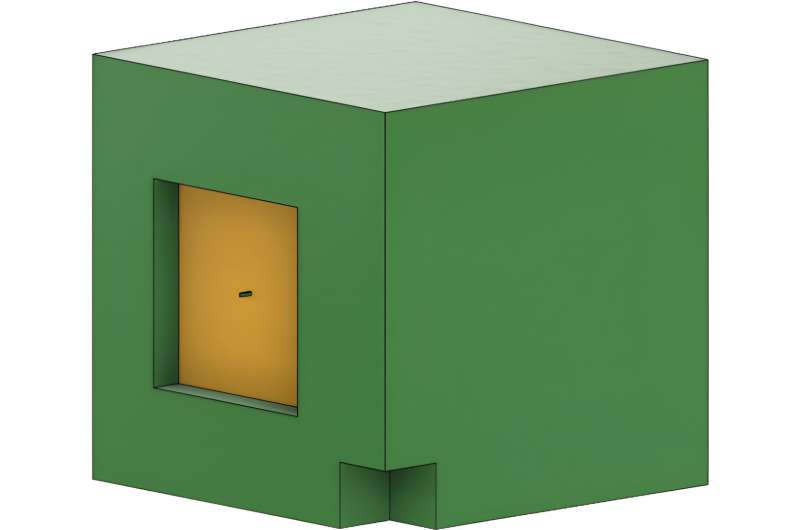
A group of scientists have found compressed air energy storage systems to have the potential of replacing conventional electrochemical batteries as a cheaper alternative, and with better storage capacity that is even sufficient to keep AC gadgets running.
The team led by University of Sharjah's Professor of Sustainable and Renewable Energy Abdul Hai Alami have published the results of their research titled "Performance assessment of buoyancy work energy storage system with various buoy materials, coatings, and gasses" in Journal of Energy Storage.
The paper, according to the authors, expands and draws on an earlier 2022 publication titled "Experimental evaluation of compressed air energy storage as a potential replacement of electrochemical batteries" published in the same journal.
The researchers work comes under the appellation "buoyancy work energy storage" which depends on applying a force through pulleys and ropes on a floating buoy to descend it below the water surface during periods of high energy production. Once the buoy reaches its maximum allowed depth, it is locked in place using an anchor.
When energy is to be harvested back, the buoy is allowed to ascend to the surface of the water body, rotating an electrical generator in the process, which facilitates the transformation of the stored potential energy into useful electrical energy.
Prof. Alami notes, "Overall, a levelized cost of electricity to a system of this nature that would be coupled to an offshore wind turbine array (i.e., the London array) is expected to be 0.978 cents($)/kWh, which is considered to be competitive to other technologies, such as batteries, standing at 8.69 cent($)/kWh, for the same conditions.
"Since the idea is based on a basic physical principle that appeals to many scientists, its implementation potential is understandable and straightforward and brings the industry one step closer to replacing the total dependence on batteries in energy generation."
Prof. Alami says he and his co-authors now have a project that "truly showcases the potential of replacing conventional electrochemical energy storage, by a cheaper alternative, all while having an AC output, which is desirable for most domestic appliances."
Prof. Alami hopes that the project and the two articles he and his colleagues have published will raise awareness that batteries are not the sole method of energy storage despite the current bias towards electrochemical batteries which is seen by many "as the go-to storage technology [and] the first answer one would think of when asked about energy storage devices."
In their first study, the authors show novelty in terms of testing compressed air energy storage systems against conventional electrochemical batteries and provide ground for comparison with proper quantification coupled with mathematical evidence that compressed energy storage can replace conventional electrochemical batteries.
The setup of the experiment conducted by the scientists consists of air tanks, turbo expanders (air motors), gearboxes and an AC permanent magnet generator. "These equipment[s] provided an experimental roundtrip efficiency of around 60% equipment with more room for future enhancements," the scientists note in their study.
More information: Abdul Hai Alami et al, Performance assessment of buoyancy work energy storage system with various buoy materials, coatings, and gasses, Journal of Energy Storage (2023). DOI: 10.1016/j.est.2023.108524
Abdul Hai Alami et al, Experimental evaluation of compressed air energy storage as a potential replacement of electrochemical batteries, Journal of Energy Storage (2022). DOI: 10.1016/j.est.2022.105263
Citation: Compressed air energy storage systems could replace conventional batteries as energy providers, say scientists (2024, February 5) retrieved 5 February 2024 from https://techxplore.com/news/2024-02-compressed-air-energy-storage-conventional.html
This document is subject to copyright. Apart from any fair dealing for the purpose of private study or research, no part may be reproduced without the written permission. The content is provided for information purposes only.
